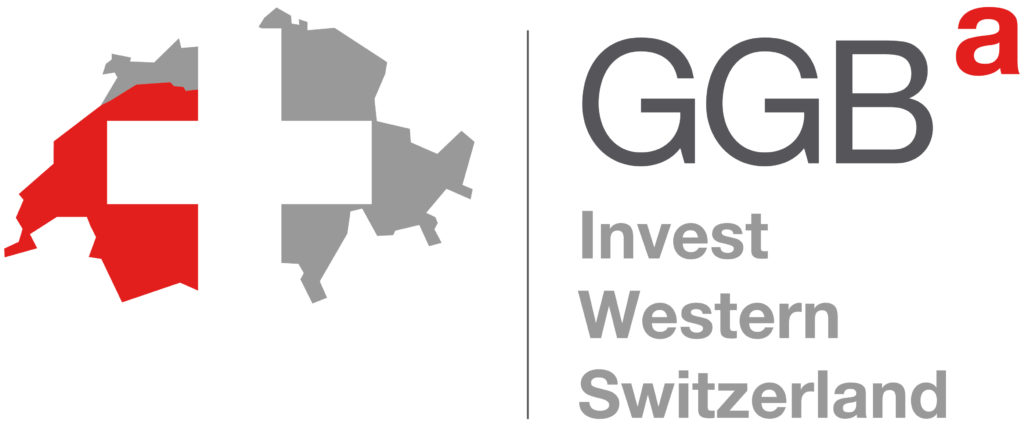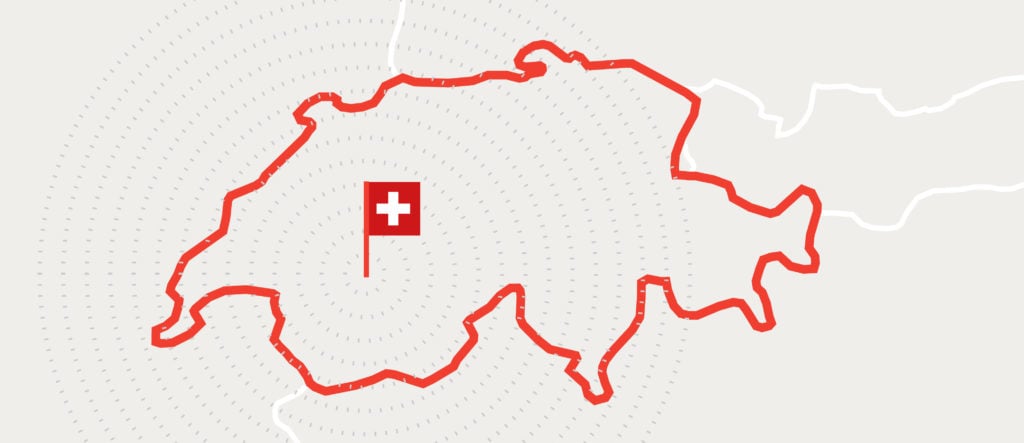Message From the GGBa Director
Thomas Bohn

Thomas Bohn outlines how the life sciences industry in Western Switzerland has continued to perform well despite the COVID-19 pandemic, highlights some of the key recent investments in the Greater Geneva Bern area (GGBa), and gives an overview of what the region has to offer global companies across the life sciences value chain.
Despite the COVID-19 pandemic, this year’s results have been even better than last year’s; a testament to Switzerland’s resilience and its strong appeal as a safe haven for investment in times of crisis
2020 marks the 10-year anniversary of the Greater Geneva Bern area initiative (GGBa); could you outline the purpose and scale of the organisation?
The GGBa is the investment promotion agency for Western Switzerland, bringing together the cantons of Bern, Fribourg, Vaud, Neuchâtel, Geneva and Valais. The agency’s mission is to provide support to foreign companies allowing them to get established quickly and develop their activities in the region.
Since its creation in 2010, the GGBa and its 18-person team, in cooperation with the cantonal economic promotion agencies, has helped hundreds of companies from around the world to launch their activities in the region. Every year, our team handles between 200 and 250 investment projects.
While we had organised some physical events with our partners to celebrate our 10-year anniversary, these had to be cancelled due to the COVID-19 pandemic. However, we were able to organise a range of interactive digital activities and events, including webinars, and have more planned. On December 3rd, we hosted a webinar on “Addressing the global shortage of biologics production capacity: Partnerships across the value chain”, where we explored Western Switzerland’s role as a leader in cutting-edge biologics production. This is a crucial topic; particularly as the many COVID-19 vaccines currently in development will further increase the market gap between biologics manufacturing demand and capacity.
How relevant is the biopharma industry to your overall operations?
We are not only involved in biotechnology or pharmaceuticals, but in all sorts of innovative industries. For example, Switzerland is very strong in drone technology and robotics, as showcased in our Virtual Swiss Drone Industry Tour. In terms of numbers, biopharma is not necessarily the industry where the bulk of projects are taking place, but it is definitely the sector with the biggest potential in terms of investment size and job creation.
We have been seeing big biopharma investments in Western Switzerland year-on-year ever since the formation of GGBa. These investments have come from both larger well-known players as well as innovative SMEs.
Having a successful biopharma industry necessitates investment right across the value chain; from research to development, manufacturing, supply, and logistics. This is what we are continuing to build in Western Switzerland. Despite the COVID-19 pandemic, this year’s results have been even better than last year’s; a testament to Switzerland’s resilience and its strong appeal as a safe haven for investment in times of crisis.
How do you explain this upturn in performance for the life sciences sector amid a pandemic?
I cannot pinpoint the exact reason but the COVID-19 crisis and the associated race to develop vaccines and treatments seems to be having an effect on how quickly decisions are being made. This does not just apply to research on COVID-related therapeutics, but also to research in other areas, as well as how quickly regulatory decisions are being made.
For example, Moderna has teamed up with Lonza to invest CHF 210 million in a new production infrastructure in Visp, canton of Valais, which will be capable of producing 100 million doses of the company’s mRNA vaccine against COVID-19 a year. This project was completed in just eight months rather than the normal timeframe of more than two years.
Another company, California-headquartered JSR Life Sciences, recently announced the expansion of the European gene-to-GMP biologics manufacturing facilities of its affiliate companies KBI Biopharma and Selexis in Geneva. The two companies will occupy 8,700 square meters in the Stellar 32 campus within Geneva’s ZIPLO (Industrial Zone Plan-les-Ouates), creating more than 250 new technical jobs in the city. In the current situation, there is crisis and uncertainty everywhere but somehow there is always good news to share.
What have been some of the other major recent biopharma investments in the region?
There have been a slew of investments in Western Switzerland’s biopharma industry in recent years in addition to the aforementioned news from Moderna and JSR. These investments have been in R&D, manufacturing, as well as services and regional headquarters.
January 2018 saw global biotechnology leader CSL Behring establish an R&D centre for innovative therapeutic biologics at sitem-insel, the national centre for translational medicine, on the premises of Bern’s Inselspital.
In September 2018, Celgene – which has based its international headquarters in Boudry in the Canton of Neuchâtel since 2005 – inaugurated a new production site in Couvet, creating 100 jobs in the process.
Italian medtech firm Bracco announced a EUR 60 million investment in Geneva for the construction of a new multifunctional building in July 2019. The company, which has had a footprint in Geneva’s Health Valley since 1989, opened a second production line at the facility to support the strong growth of its medical imaging product Hexagon.
GE Healthcare Life Sciences is another company committing to the region. In January 2020 the firm announced plans for a new 7,360 square meter facility in Grens, canton of Vaud, to meet the increasing global demand for cell and gene therapies. The site is expected to be fully operational in 2022 and will be able to house up to 200 employees.
Incyte, a US biopharma outfit, inaugurated its new European headquarters in Morges in July 2020. In parallel, the company is investing CHF 100 million in a production facility in Yverdon-les-Bains that will be fully operational in 2021. We have worked closely with Incyte president & CEO Hervé Hoppenot, supporting their investment here from the beginning.
Big Pharma is actively investing in the region as well. German drugmaker Merck announced a CHF 270 million investment in a new facility in Corsier-sur-Vevey, in the French-speaking canton of Vaud in January 2020 which, once fully operational at the end of 2022, will become the Merck Biotech Development Center, focusing on biotech development and manufacturing for clinical studies.
How does the GGBa and Switzerland as a whole fare as an investment destination for innovative biopharma in relation to competitors like the Netherlands?
The Dutch are doing a great job and are clearly one of our main competitors. However, they have recently decided to raise their tax rates, which may be good news for Switzerland. In Western Switzerland, statutory corporate tax rates are in the range of approximately 13-15%, which is highly competitive by international standards. An array of possible deductions are also available, with a focus on R&D and innovation.
What is your strategy for approaching investment leads? Do they come to you or do you have to take a more proactive approach?
Switzerland is a globally recognized hotspot for biopharma companies. As such, it naturally attracts investments. Our role is to approach the companies that we actually want: innovative, profitable, operating in high-margin areas. There are hundreds of companies developing molecules all over the world, but we are really only interested in companies developing molecules that already are or will eventually go to market. This requires a business intelligent approach: we spend a lot of time analysing data to identify the most promising companies.
This does not necessarily mean only approaching companies in very advanced Phase III clinical trials for example, but rather identifying those with the most potential and make a connection early. For example, when Google first set up in Switzerland with a team of three to four people, there were only 400 people working for the company in the US and it was very easy to meet the founders. Today, that would be almost impossible! Therefore, we need to find the people who will be the big names of the future.
Our team members need to act like “company-hunters”, and possess a sound understanding of the industry they are working in, whether that be drones, blockchain, biopharma, or anything else.
What challenges is GGBa facing in attracting investment that perhaps were not there at its formation ten years ago?
Things have changed. In the past, US companies came to the investment agency via a Big Four consulting firm, whereas now we have to be more proactive.
The myth that companies come to Switzerland for tax reasons alone still persists. However, this is only one piece of the puzzle. Companies here are happy to pay reasonable taxes as it means contributing to a well-functioning economy, with top-notch basic infrastructure like roads, schools, and hospitals. Nowadays, the paradigm has changed and our value offering is less about taxes and more about the ability to forge connections in terms of partnerships, services and talent, and develop rapidly.
The free movement of people is another potential challenge, although industry associations here are doing a good job in raising these issues to the Swiss government. A fast-track visa for PhDs and highly skilled workers, as seen in other countries, could be one way to remedy this issue.
Is there a crunch on talent in your region? Pharma companies are telling us that there is not enough people, too much movement between companies, and consequently higher salaries.
This crunch exists but companies are cognizant of the fact that more investment will bring benefits to everyone. When more competition enters the market, the whole ecosystem grows, with new masters launched in the universities and more people trained. The Biofactory Competence Centre (BCC) in Fribourg, for instance, offers a wide range of industry-oriented theoretical and practical training programs covering most aspects of a biopharmaceutical production process. Competition can spark innovation and does not necessarily lead to a shortage.
What is your strategy for attracting Asian companies to invest in Switzerland?
Asia is a priority for GGBa and we are especially active in China and India. We don’t have a particularly dense ecosystem of Indian companies in Switzerland, but there have been some notable investments in the past years. Last year, ACG Inspection, which specialises in technology for the traceability of pharmaceutical products, chose the Y-Parc scientific and technological site in Yverdon-les-Bains for its European headquarters, creating around 50 new jobs and promising to invest over CHF five million up to 2022. Glenmark Pharmaceuticals (now Ichnos Sciences) has been present in Switzerland since 2004 and inaugurated a new translational R&D centre at Lausanne’s Biopôle campus in 2018. Dr. Reddy’s Laboratories also chose to locate a number of its operations in Switzerland, including its European headquarters.
China is a key market for us, and the context is favorable for attracting Chinese companies, thanks to the very good bilateral relations between Switzerland and China, and the increasing internationalization of Chinese companies. We have had a team of two in Shenzhen and Shanghai for over two years now and excellent links with Chinese firms.
How are you adapting to working with Chinese companies that are used to high fly investment but where there are perhaps question marks around security?
I frequently visit China and have met with many terrific companies. Chinese firms still have a bad reputation because of various scandals and quality issues, but China is making efforts to raise its GMP standards as it works to improve its global profile.
The Chinese government has good relationships with their Swiss counterparts, with frequent high-level exchanges. Additionally, we are the only country in continental Europe to have a free trade agreement with China and, as a small, politically neutral, country, we are open to new things. For example, while Huawei faces barriers to entry in the UK and other European markets, the company recently announced that they are investing in a new research centre near EPFL Lausanne.
What would you like our audience to take away about Switzerland in 2020 and beyond?
Switzerland is open for business, now more than ever. As the world struggles to meet demand to produce innovative therapies to treat COVID-19, as well as cancer, genetic and neurodegenerative diseases, Switzerland provides concrete and rapid solutions both in terms of establishing strategic partnerships and setting up new production facilities. Whether you want to buy or build, Switzerland is the answer.
Why do companies invest in Western Switzerland?
Flawless Operations
Skilled & Flexible Talent
Vibrant Life Sciences Environment
Ease of Setting Up a Business
Proficient Pharma Market
Successful Peer Stories
Quality of Life
The Region
Education

HubsGoGlobal is a platform under the PharmaBoardroom brand that focuses on the competitive advantages of the Hub and its value proposition in terms of strategic, operational, financial, talent and lifestyle aspects.
PharmaBoardroom provides industry trends, news and reports from all over the world. This site is for senior professionals who want to understand local and global markets.
CONTACT
Greater Geneva Bern area is an initiative of the cantons of
Bern, Fribourg, Vaud, Neuchâtel, Geneva and Valais.
World Trade Center – Av. de Gratta-Paille 2
PO Box 252
1000 Lausanne 22 – Switzerland
CONTACT
Copyright: All rights reserved. No part of this site maybe reproduced in any form or by any means, whether electronic, mechanical or otherwise including photocopying, recording or any information storage or retrieval system without prior written consent of PharmaBoardroom. While every attempt is made to ensure the accuracy of the information contained in this website, neither PharmaBoardroom nor the authors accept any liabilities for errors and omissions. Opinions expressed in this report are not necessarily those of the authors.
2021 © PharmaBoardroom











